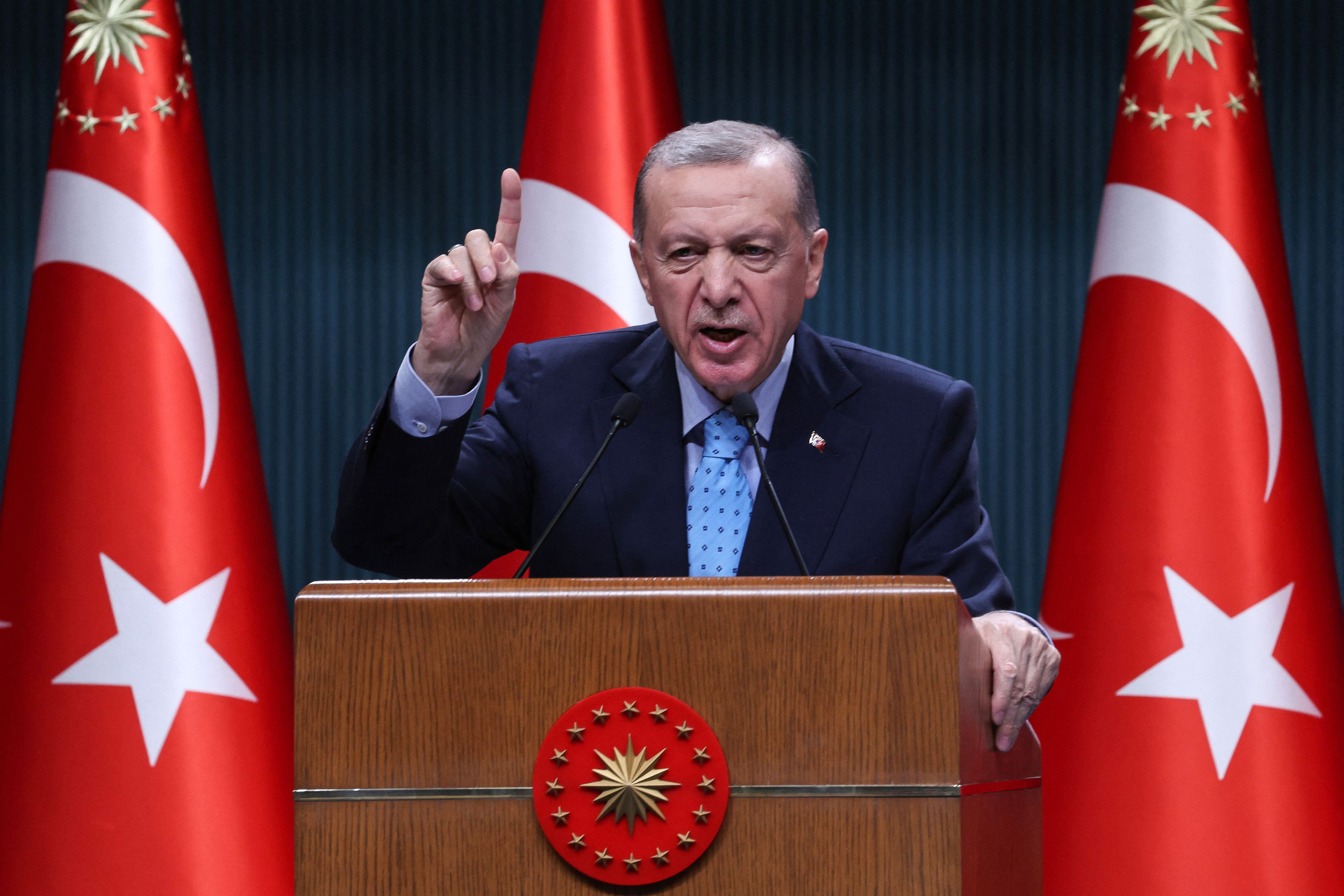After U.N. Diplomacy Blitz, Turkey’s Erdogan Reverts to Authoritarian Ways
The annual United Nations General Assembly (UNGA) gathering in New York was a windfall for Turkey’s President Recep Tayyip Erdogan. He had the chance to shed his unpopular image on the international stage, patching up his differences with old foes (Prime Minister Benjamin Netanyahu of Israel), and cultivating further ties with others. While prominent leaders of France, the U.K., Russia, and China opted out of UNGA, the Turkish strongman used the occasion as a diplomatic charm offensive.
This year’s convention, like the last year, took place under the shadow of the Ukraine-Russia War. The current state of the war in Ukraine once again underscored the geopolitical vitality of Turkey. The Turkish leader has made the best of it so far by playing both sides by navigating a morally dubious policy of neutrality between Russia and Ukraine. While exasperated by Erdogan’s rapport with Russian President Vladimir Putin, the Western block emerged reluctant to go hard on Ankara after its valuable mediation efforts in the grain deal, prisoner swap, and many more.
Turkey’s recent endeavors, including its support for Sweden’s NATO membership, even led one analyst to suggest that Turkey is “turning toward the West.” Such conclusions, however, may be premature, even misleading. In reality, Erdogan’s political model increasingly mirrors a competitive authoritarianism with electoral autocracy, revealing an administration with an unsettling record regarding human rights and democracy.
For the president, it did not take long after his diplomatic blitz at the U.N. to revert to his authoritarian self. Last week, an appeals court in Turkey approved prison terms for activist Osman Kavala and others in the infamous Gezi Park protests trial. The authorities accused Kavala and others of attempting to topple the government through civil unrest and mass protests, charges that critics deemed as politically motivated and groundless. Kavala will now serve a life sentence.
“Reflecting the lack of judicial independence under Erdogan, Turkey’s appeals court upholds the life sentence for Osman Kavala for having done nothing more than being a civic leader and a scapegoat for the Gezi Park protests against Erdogan,” Kenneth Roth, the former executive director of Human Rights Watch (HRW), wrote on Twitter.
In a recent landmark ruling, the European Court of Human Rights (ECHR) decided that Turkey violated the rights of Yuksel Yalcinkaya, a Turkish teacher who was imprisoned over charges of being a member of a terrorist organization. The evidence the prosecution presented was solely based on him downloading a smartphone app. AP reported: “In a statement, the court said that ‘such a uniform and global approach by the Turkish judiciary vis-a-vis the ByLock evidence departed from the requirements laid down in national law’ and contravened the convention’s ‘safeguards against arbitrary prosecution, conviction and punishment.'”
Frankly speaking, Turkey is not turning toward the West. The troubling part of this story is that Erdogan’s decade-long chokehold of democratic institutions, his trampling of judicial independence, and his crackdown on opponents are not limited to the frontiers of Turkey. The rap sheet of the Erdogan government in human rights violations only becomes more pronounced over time. As recently as this past month, Turkish intelligence allegedly contrived another snatch-and-grab operation to render Koray Vural, a businessman living in Tajikistan for the past 29 years, in what appears to be the latest phase of a prolonged global haunt against dissidents living abroad.
The controversial practice of kidnapping dissident citizens on foreign territory is only one part of a larger conundrum concerning the Turkish government. Along with China, Russia, Iran, and Venezuela, Turkey is accused of weaponizing Interpol, overloading it with Red Notices of dubious credibility. The intent? Hunting critics, poets, and journalists. This abuse threatens Interpol’s institutional efficacy and reputation. To make matters worse, Kafkaesque scenarios leave expatriate Turks in legal limbo, stranded in diplomatic no-man’s land at airports or border gates due to revoked passports.
Also, his new diplomatic team after the May election is not reassuring. The appointment of Hakan Fidan, erstwhile intelligence czar, as Turkey’s foreign minister is quite revealing. Fidan is widely seen as a master of dark arts. The former spy chief, Erdogan’s loyal enforcer, has a dark legacy marked by reports of covert ops in Syria and Libya, illegal renditions of dissident citizens abroad, enforced disappearances of sacked public servants, and torture of detainees in intelligence-run facilities. With such a resume, Fidan has emerged as the new face of Turkey’s international diplomacy.
In essence, Ankara’s dance with authoritarian regimes, Erdogan’s steady camaraderie with Putin, the global manhunt against critics, the ECHR ruling, the Kavala sentence, and the Turkish foreign ministry’s metamorphosis should be red flags. The Turkish diplomatic delegation might have sold the U.N. gathering as the marked moment of a new pivot, but we should not miss the bigger picture.
We were deceived before. Not this time.
Let’s all remain vigilant.
Enes Kanter Freedom is a NBA player and human rights fighter.
The views expressed in this article are the writer’s own.



